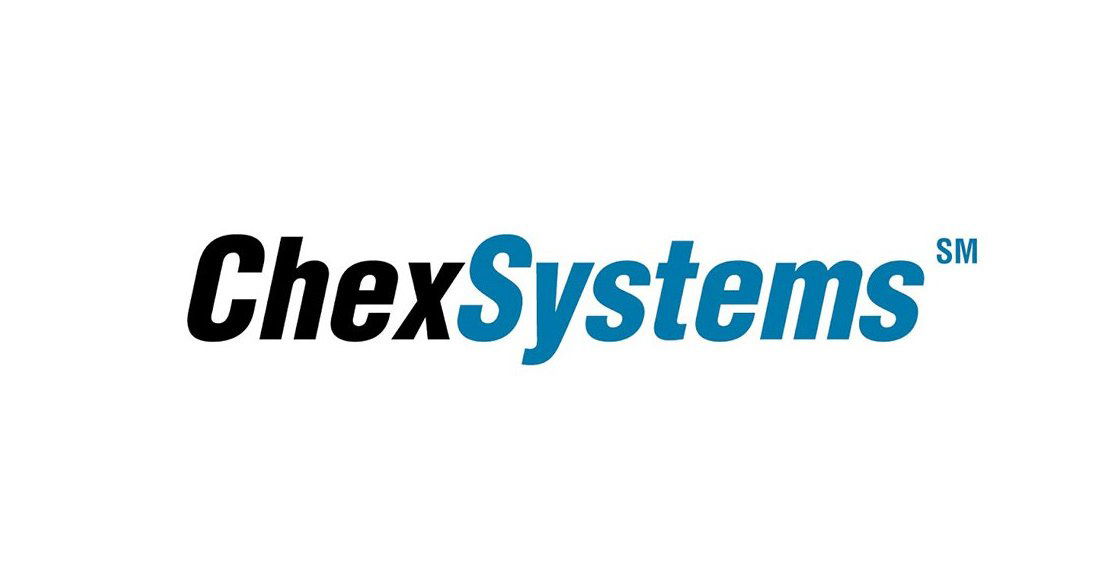If you’ve ever been denied an application for a bank account, you may be wondering what exactly went wrong. While there are several possibilities, one potential cause is Early Warning Services.

This risk detection service screens applicants to help banks and credit unions make sound decisions. While the goal may be fraud prevention, EWS’s tactics impact individuals across the country.
Find out exactly what Early Warning Services does and how it affects you. We’ll also show you how to potentially stop it from hurting your banking future. Then, we’ll take you through the process, so you know what to expect when dealing with EWS.
What is Early Warning Services?
Early Warning Services LLC is a relatively new creation that allows financial institutions to evaluate the risk potential for new clients. If the applicant is deemed too risky, they are denied service at the bank or credit union. Sound familiar?
Early Warning Services is similar to such services as TeleCheck and ChexSystems. EWS was created jointly by several large banks, including Bank of America, Capital One, JPMorgan Chase, PNC Bank, Truist, U.S. Bank, and Wells Fargo.
It’s not always seen as competition to TeleCheck and ChexSystems. Instead, it’s often considered an additional level of security during the screening process.
Early Warning Services is also the owner and operator of the Zelle Network. Zelle is a financial services network that allows people to send and receive money from each other via connected bank accounts.
What does Early Warning Services do?
Specifically, EWS identifies individuals who have committed financial fraud in the past. The term ‘fraud’ refers to a wide variety of activities. For example, you may even be flagged if you inadvertently tried to cash a fraudulent check you received from someone else.
While the process may help banks evaluate applications, it can be highly damaging for individuals. Luckily, there are ways to circumvent Early Warning Services and even clear your record.
How Your Banking History Is Screened by EWS
Early Warning Services is a subscription service that banks and credit unions pay to use. It screens bank applicants and sometimes even current account holders for several things.
These include any previous history of fraud or bank account abuse, forgery, counterfeiting or check altering, paperhanging or check kiting, verifying identity, and authenticating account ownership. The screening can occur at any point of interaction, such as online, over the phone, or at the teller window.
While EWS screening doesn’t entail looking at your credit history, it does review your past banking behavior. In addition, it looks at information from various sources, including other financial institutions and third parties.

The data primarily pertains to bank accounts and how you’ve used them in the past. However, Early Warning Services doesn’t just focus on negative data; they include positive data points as well. According to Early Warning Services, they take extra care to ensure any information used in the evaluation process is accurate and validated.
Of course, you can check to see how true it is. The Fair Credit Reporting Act (FCRA) also allows you to dispute items you disagree with, just as you can dispute your credit report with the three major credit bureaus.
On a positive note, products from EWS don’t result in a strict “yes” or “no” for approval. Instead, the goal is to help financial institutions provide potential customers with products that are right for them and the bank. Early Warning Services can affect your access to bank products. So, it’s vital to know exactly what happens throughout the process.
How Being in Early Warning Services Can Affect Your Banking
The biggest impact caused by Early Warning Services is that you can be denied the ability to open a new bank account. This includes a checking or savings account, or even a more sophisticated product. Moreover, you may even have your bank account shut down after it’s been open.
There are reports of people getting approved for a new bank account only to have it closed soon after by another bank department (usually loss or fraud prevention). You may also have checks that you’ve written denied because of EWS.
Many people in Early Warning Services aren’t running money laundering schemes or a counterfeit currency shop in their basement. But, unfortunately, you can be reported in EWS for something minimal, like a small fee owed to a former bank. Even if you’ve since paid the fine, the listing could remain on your Early Warning consumer report.
If this has happened to you, whether for large infractions or small ones, there is a solution. You can apply for a second chance bank account at a bank or credit union that specializes in them.
Many banks provide this type of checking account, often with no fees or few other requirements. If you’re having trouble opening a checking account due to EWS, TeleCheck, or ChexSystems, you could potentially benefit from a second chance account.
Early Warning Services vs. ChexSystems vs. TeleCheck: What Sets Them Apart?
With all of these consumer reporting agencies reporting to banks, it can be difficult to keep track of them all. Some banks use Early Warning Services, ChexSystems, and TeleCheck, while others use only one or two. ChexSystems is the most widely used risk detection program for financial institutions; however, the entire industry is gaining popularity.
The most significant difference is how your information is reported to the bank. Early Warning Services, for example, provides a simple form with your relevant financial history on it. However, ChexSystems, used by 80% of banks in the U.S., includes a summary in their evaluation.
TeleCheck provides a risk score in addition to a form and summary. In essence, these three companies are extremely similar, especially from the consumer’s perspective.
But if you’re denied, it’s essential to know which service was used so that you can check (and potentially dispute) your consumer reports.
How to Access Your Early Warning Services Consumer Report
If your application was denied based on information from Early Warning Services, you are entitled to a free consumer report from EWS so you can find out why. Like a ChexSystems report, your EWS report lists out any negative information regarding your banking past.
This includes all the risk detection points discussed earlier, like fraud and abuse. Rather than ignoring the problem and remaining unbanked, take the initiative to find out what exactly is on your consumer report. If it’s inaccurate, you can get it taken care of so you can start banking.
To receive a copy of your consumer report, you can contact Early Warning Services directly. Visit their Consumer Services web page to print off the Identification Form. You can then either create an online account and submit it electronically or mail it to the following address:
Early Warning Service LLC
Attn: Consumer Services Department
16552 N. 90th Street
Scottsdale, AZ 85260
Alternatively, you can fax the form to (480) 656-6850. To contact EWS with questions, call them at 1 (800) 325-7775.
How to Clear Your Name from Early Warning Services
Once you receive your Early Warning Services report, you’ll find any negative information about your bank history. It will also include your personal information and the contribution reason explaining why the account is listed.
The report also lists out any former disputes you’ve initiated and any rebuttals if a dispute has been denied. That way, future banks can at least see your response to the previous bank’s accusations.
Once you review your EWS record, you may find that you disagree with one or more of the negative listings. However, if the information is accurate, particularly surrounding past bank fraud, it may be difficult to get the data removed.
How to Dispute Early Warning Services
If the listing refers to old unpaid debts or fees that have since been repaid, you may successfully get those removed. EWS provides a dispute checklist to guide you through the process.
You’ll need to provide some basic information regarding the account in question. At a minimum, you can expect to pull together:
- Your consumer ID number from EWS
- Specific information on the account in dispute, including the account number
- Why you’re initiating the dispute, including reasons the listing is incorrect or incomplete
- A description of each dispute, each signed on a separate piece of paper
- Relevant details about the account in question
- Supporting documentation to back up your claim (send copies, not originals)
Within 30 days, you should hear back on the results of your dispute. If your request has been granted, EWS should remove the relevant negative item from your consumer report. It may then be worth reapplying for an account.
If your request has not been granted, you may submit a rebuttal. This appears as the last line of the entry so that a bank can use their own best judgment in reviewing your application.
You can submit it in the same manner as the dispute form. Note that a rebuttal may not contain names of individuals or businesses or profanity.
Protecting Yourself from Early Warning Services Scams
When it comes to the financial services industry, you can bet there’s always someone trying to take advantage of another person in a tight spot.
Unfortunately, this holds true if you’re having trouble getting an account. There are plenty of fake companies targeting EWS that will attempt to get money from of you.
Here’s how to identify such scammers and avoid them entirely.
Free Early Warning Services Report
First, know that EWS must provide you with a free report once a year. If you find a company or website claiming to help you get your EWS information for a fee, they’re probably not legitimate. As you’ve learned, requesting your report is easy and free.
Other Scams
Another scam tactic to look out for is someone contacting you to collect money allegedly on behalf of Early Warning Service. EWS is simply a consumer reporting agency, and any business acting otherwise should be reported to the Consumer Financial Protection Bureau.
Finally, watch out for companies that want to dispute negative EWS listings on your behalf. This is especially true if they guarantee results. Unfortunately, there’s no way to guarantee that you’ll get your EWS report cleared of negative items.
You’ll likely end up paying an expensive fee for something you could’ve done on your own. Or worse, you’ll pay and then not hear back from the company at all. So trust your gut when it comes to protecting your financial information.
You don’t want to hand out your hard-earned money or your personal data. When fixing your report, work directly with EWS.
Bottom Line
Early Warning Service attempts to provide banks and credit unions with risk assessment tools. But like with all data collection efforts, not everything is done correctly.
Computers may be great, but they don’t always tell the full story. So instead of assuming that you can never qualify for a bank account, stay on top of your EWS report.
You may be surprised to learn that your banking history isn’t actually represented accurately. If that’s the case, it’s your right and responsibility to get it fixed. Results are never guaranteed, but it’s important to understand how your personal and financial information is being collected and distributed.




